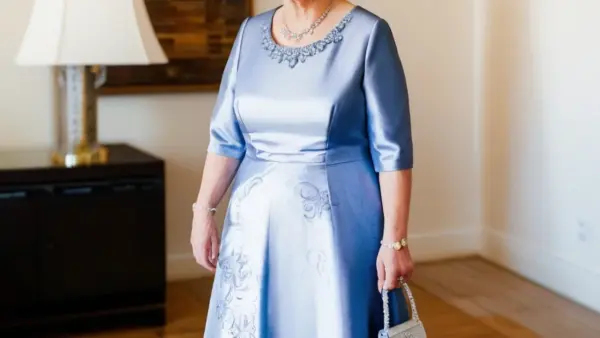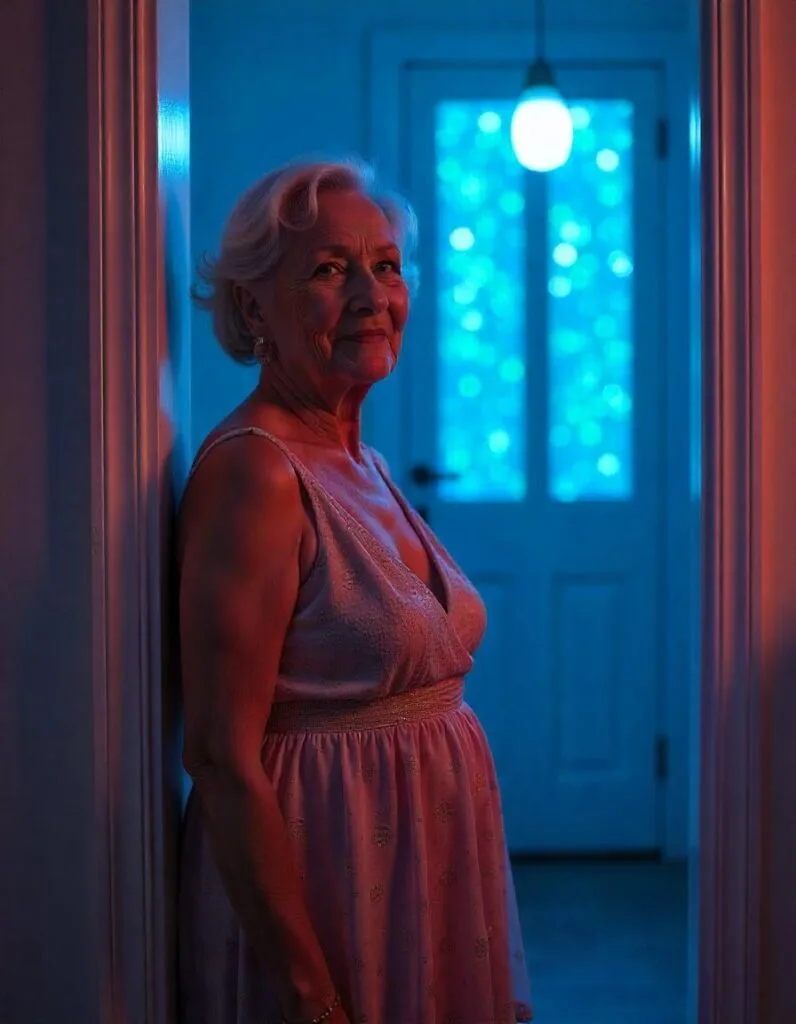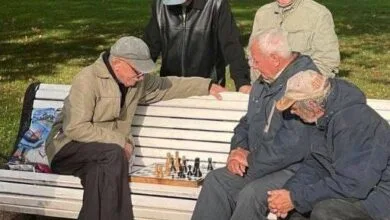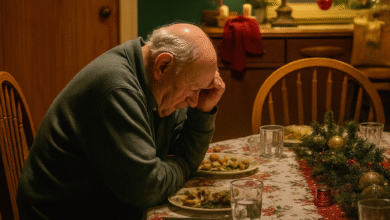The Inappropriate Dress: A Lesson on Youth and Identity.

It was a warm Saturday afternoon when my 62-year-old mother showed up at my house wearing the dress. She had bought it the week before and, despite it being a questionable choice, had worn it every single day since.
The dress itself wasn’t necessarily ugly — it was just too flashy, too youthful, and completely out of place for someone her age.
And the heels — oh, the heels. They were high, sleek, and silver, the kind you’d picture on a much younger woman heading out for a night on the town. But my mother wore them like they were part of a new version of herself.

I couldn’t even remember the last time she wore something age-appropriate, but I kept quiet.
At least for now. It wasn’t that I didn’t love my mom — I adored her — but she had always been someone who tried to stay ahead of trends, pushing boundaries even when it wasn’t necessary.
She always prided herself on being youthful, and while I admired her spirit, sometimes it made me feel uncomfortable.
But yesterday, everything came crashing down. It was my daughter Sophie’s sixth birthday. We were hosting a party at home, and all of her classmates had been invited. I had spent the entire week planning, decorating, and trying to make sure everything was perfect for her.

I knew Sophie would be excited, but there was a worry lingering in the back of my mind — that the party might be overshadowed by my mom’s lack of awareness about how out of place her outfit was.
When the doorbell rang, I opened it, and there she was — standing with a wide smile, her gray hair perfectly styled, and that dress: floral, bright yellow, with a hemline that stopped just above her knees. The heels, of course, were silver and glittered in the sunlight. She looked at me expectantly, waiting for my reaction.
“Mom, are you sure about this?” I asked, trying to keep my voice calm and hide my discomfort.
“Oh honey, don’t be silly. I love it!” she exclaimed, twirling in the dress. “I feel fabulous — like I’m twenty again! I may be older, but I refuse to let age define me.”
I gave a weak smile, trying not to show how uneasy I felt.
“You look fabulous, Mom. It’s just that… well, the kids are already here and…”
“What’s wrong with a little style?” she interrupted. “I want to feel good, and this dress makes me feel like I can take on the world.”
She was clearly proud of herself, and part of me wanted to let her enjoy it, but another part felt a sting of embarrassment.
As the party went on, I noticed how the other parents looked at her — those subtle smiles tinged with silent judgment. The kind of looks that say “poor thing” without saying a word.
Sophie, bless her, didn’t seem to care at all. She was running around with her friends, totally oblivious to the discomfort growing inside me.
But I couldn’t ignore the glances from the other moms or the hushed whispers that followed my mother around. Whether she noticed or didn’t care, I felt the weight of it all pressing down on me.
Later, while the kids were eating cake, I pulled my mom aside.
“Mom, can we talk for a second?” I asked gently but firmly.
“Of course, dear. Is something wrong?” she asked, a note of concern in her voice.
I hesitated. I didn’t know how to say it. I didn’t want to hurt her feelings, but I needed to be honest. I needed her to understand that her choices were no longer as charming as they once were.
“Mom, I just… I don’t know how to say this, but I think the dress and the heels aren’t really… you anymore,” I began, my words coming out slower than I intended.
She looked at me, her expression falling. “What do you mean? You don’t like it?”
“I do… but maybe it’s time to consider something a bit more… age-appropriate,” I said, stumbling over my words. I wasn’t trying to be cruel, but I felt a weight lift from my chest once I said it out loud.
My mom looked hurt. “You’re embarrassed by me, aren’t you?” Her voice trembled, and I saw her fighting back tears.
“No, Mom, I’m not embarrassed by you,” I said quickly, heart aching. “I love you so much. I just think maybe you’re trying to hold on to something that… doesn’t quite fit anymore.”
She looked away, her lips quivering slightly.
“I just don’t want to be invisible. I don’t want to grow old and have no one notice me,” she whispered. “I thought maybe this would help me feel seen… you know?”
I stepped closer and placed my hand on her arm.
“Mom, you’re not invisible. You never were. You’re my mother, and that’s all that matters. You don’t have to dress like you’re twenty to be beautiful. You already are.”
She didn’t say anything at first — just stared at the floor, her shoulders trembling slightly. I could tell my words hurt more than I’d expected, but I also knew they were necessary.
Later that night, after everyone had left and the house was quiet, I found my mom sitting alone in the living room. She had taken off the heels and rested the dress on her lap. Her eyes were red — she’d been crying.
“I’m sorry,” she said quietly, voice raw. “I didn’t mean to make you uncomfortable. I just didn’t want to lose myself.”
I sat down beside her, guilt washing over me for having been so harsh.
“Mom, I didn’t want to hurt you. I just want you to be happy. And I think maybe you’ve been clinging to a version of yourself that doesn’t reflect who you are anymore.”
She nodded slowly. “I guess I’m scared of what it means to get older. I thought if I kept trying to look young, maybe I could stop time. But you’re right. I don’t need to do that. I’ll try to let go.”
I hugged her tightly, both of us holding onto each other in the still sadness of that moment. I knew my mom would never stop trying to look youthful — but I also realized it wasn’t about the dress or the heels.
It was about her desire to feel seen, to feel relevant, to matter in a world that often stops noticing the elderly.
In the days that followed, I tried to be more understanding. I helped my mom pick out new clothes that made her feel comfortable — things she could wear with confidence without pretending to be someone she no longer was.
But deep down, I knew that conversation had left a mark — one that would take time to heal.
And that’s the painful truth: sometimes, the things we do to avoid feeling invisible are the very things that push us away from the people we love most.





